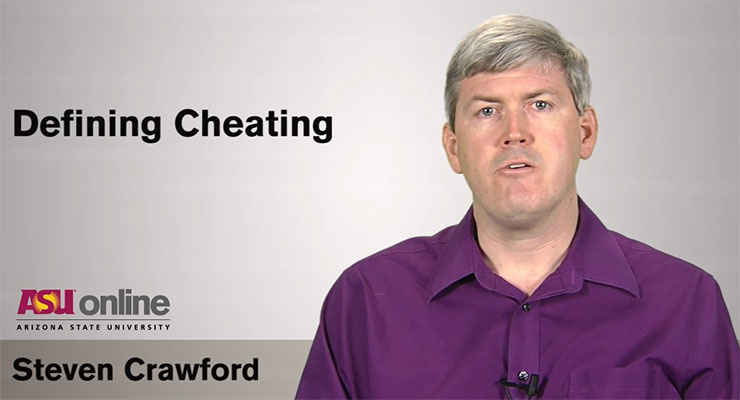
Categories:
Course Design
Defining Cheating
When someone says “Don’t cheat” what do they really mean? Students often commit acts of academic dishonesty not because they are lazy, but because they did not understand that what they were doing was considered cheating. This video will explore various definitions of cheats in order to help you communicate clearly to your students what you define as cheating.
References
- Bauman, P. (2002). Modeling ethics for distance learners. Distance Education Report 6(7). 1-2.
- Day, M., & James, J. (1984). Margin and the adult learner. MPAEA Journal of Adult Education, 13(1), 1-5.
- Grasgreen, A. (2012, March 16). Who cheats, and how. Inside Higher Education. Retrieved from http://www.insidehighered.com/news/2012/03/16/arizona-survey-examines-student-cheating-faculty-responses
- Lawrence Kohlberg’s stages of moral development. (n.d.) Retrieved from the wiki: http://en.wikipedia.org/wiki/Lawrence_Kohlberg%27s_stages_of_moral_development
- McClusky’s theory of margin (1963). Semiretired from the Wiki: http://adulteducation.wikibook.us/index.php?title=McClusky’s_Theory_of_Margin_(1963)
- Varvel, V. E., Jr. (2005). Honesty in online education. Pointers & clickers 6(1). Retrieved from http://www.ion.uillinois.edu/resources/pointersclickers/2005_01/index.asp
- Watson, G. & Sottlie, J. (2012). Cheating in the digital age: Do students cheat more in online courses? Online Journal of Distance Learning Administrators 15(1). Retrieved from http://www.westga.edu/~distance/ojdla/spring131/watson131.html
Leave a Comment
Your email address will not be published. Required fields are marked *